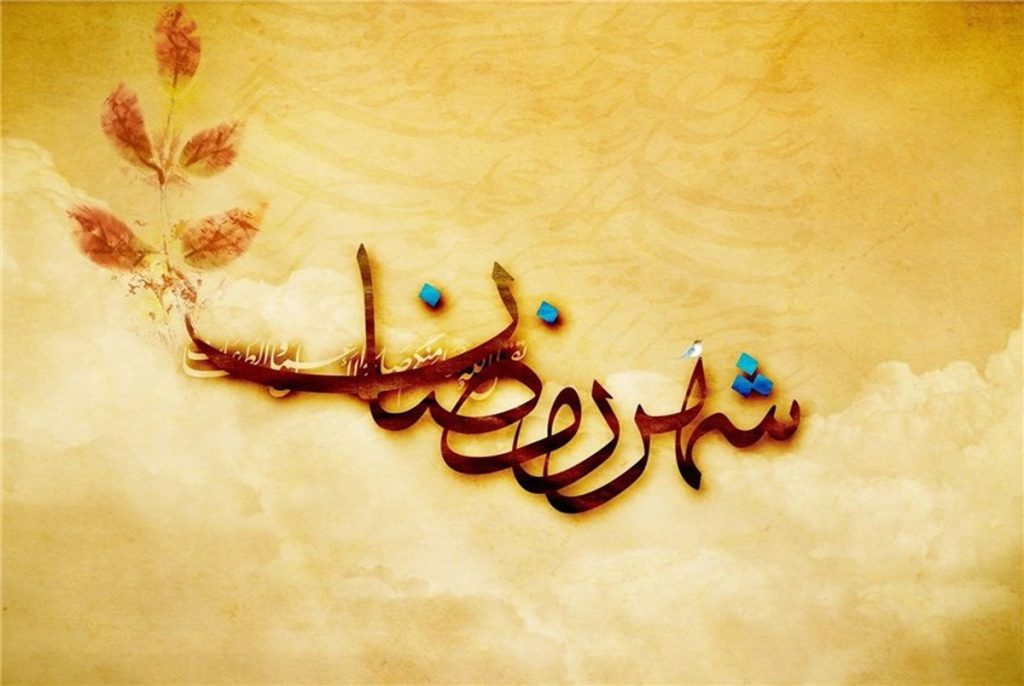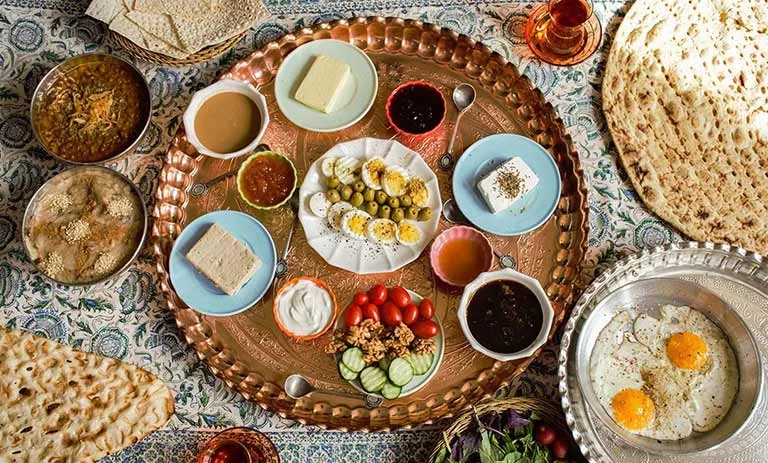“Ramadan” is derived from “Ramaza” and means to burn. In this virtuous month, many sins are forgiven and there are many blessings in it. In this regard, the Messenger of God (PBUH) says: The month of Ramadan is called by this name because sins are burned in it. In this post, we will know importance of Ramadan for Muslims.
This month is the only lunar month whose name is mentioned in the Qur’an and it is one of the four months in which fighting is forbidden by God Almighty. (It is allowed only when it has a defensive aspect) The holy books namely the Holy Quran, the Bible, the Torah, the Scrolls of Abraham, and the Zabur have been revealed in this blessed month.

Importance of Ramadan for Muslims
This blessed month in Islam is known as the month of God’s party and the Prophet’s Ummah’s party, and His servants will be treated with dignity and kindness by God Almighty. The Messenger of God (PBUH) says about this: “The month of Rajab is the month of God, and the month of Sha’ban is my month, and the month of Ramadan is the month of my Ummah. Whoever fasts in this month, it is obligatory for him to have his sins forgiven, and God will guarantee rest of his life and he will be safe from thirst on the Day of Resurrection.
This month is one of the most respected and important months among the Muslims of the world, and one of the Importance of Ramadan for Muslims is spiritual guidance for them, it is usually used to make an introduction in this month and to welcome it and provide spiritual preparation in the months of Rajab and Sha’ban. Muslims make such preparations every year to get ready to enter this month and benefit from the virtues of Ramadan, with the entry of this month, the passion for giving evening treats (iftar) and helping the needy increases, and many people stay awake and pray until dawn. Many livelihood packages are given to the needy and poor in this month.
Virtues of Ramadan
This month has many benefits and virtues and it is not possible to mention all of them. In the rest of this article, we will mention some of the most important virtues of Ramadan that are mentioned in Islamic traditions and hadiths.

1. The best month: Importance of Ramadan for Muslims
One of the virtues of the month of Ramadan is that it is considered the best month of the lunar year, and regarding the revelation of the Qur’an in that month, the Holy Qur’an says: “The month of Ramadan is the month in which the Qur’an was revealed to guide mankind.” Surah Baqarah, verse 185.
2. The revelation of the Holy Quran and the heavenly books
The revelation of many great heavenly books in this month shows the virtues of the month of Ramadan. Many great books such as the Holy Quran, Torah, Bible, zabur, and Scrolls of Abraham were revealed in this month. Hazrat Imam Sadiq (a.s.) has stated in a narration: “The entire Holy Quran was revealed to Bayt al-Ma’mor in the month of Ramadan, then for twenty years, the Holy Prophet (s.a.w.) and the scrolls of Abraham were revealed on the first night of the month of Ramadan and the Torah on the sixth day of the month. During Ramadan, the Gospel was revealed on the 13th day of Ramadan, and the Zabur on the 18th day of Ramadan. See: Al-Kafi, ibid., vol. 2, p. 628

Properties and benefits of fasting: Importance of Ramadan for Muslims
God has blessed his servants with the success of fasting in this month, which brings many benefits and properties, “so whoever understands this month, fasting becomes obligatory for him.” Surah Baqarah, verse 185
1. The mental and psychological properties and benefits of fasting
one of importance of Ramadan for Muslims is its spiritual and psychological aspect. An action that God has made obligatory for humans is definitely beneficial for us. Certainly, the human soul needs spirituality, just like the human body, which is strengthened by eating food. In order to achieve this spirituality of soul, one must follow the commands of Almighty God. Fasting is one of these obligatory acts. One of the benefits of fasting is strengthening the human will and overcoming the ego (nafs), and it also removes negative thoughts and temptations of the devil. It causes peace of heart, strengthens the will in man, provides patience and tolerance, and prepares man for other acts of worship. Fasting has many physical and spiritual properties and benefits that have been scientifically proven.

2. Heart health by fasting
Improving the heart system is another importance of Ramadan for Muslims. Fasting will reduce heart attacks. By doing this, the amount of homocysteine decreases and thus one of the most important causes of heart attack is eliminated. It will also improve heart failure, fasting reduces the risk of heart disease by lowering blood pressure and improving heart rate.
3. Elimination of toxins from the body during Ramadan
This month is the perfect opportunity to get rid of the fat accumulated in the body by consuming food. Especially for foods that have additives that are harmful to health and will turn into poison over time. When a person is fasting, his body does not spend energy on digesting food, instead, it spends its energy on burning those extras and new cells are produced to regenerate the body.
4. Benefits of fasting for the digestive system: Importance of Ramadan for Muslims
Scientists have concluded that one of the properties and benefits of fasting in Ramadan is cleansing the body and digestive system. The cells of this part of the body have more shedding than other parts, by fasting for a month, the activity of this part will decrease and there will be a good opportunity to renew and rebuild it, as well as the rate of metabolism increased and as a result, the amount of metabolic activities reach the normal level. After a month of fasting, this part of the body will continue its activity better.
5. Strengthening piety, will and self-control
Another aspect of the importance of Ramadan for Muslims is Taqwa. Imam Sadiq (a.s.) has said in a hadith about the properties and benefits of fasting: God Almighty said: “Fasting is from Me and I give its reward.”
Hazrat Fatimah (PBUH) also says: “God made fasting obligatory for the steadfastness of sincerity(Ikhlas).”
6. Avoiding the torments of this world and the hereafter:
Imam Ali (a.s.) has said about the properties and benefits of fasting: “Fast that causes the intestines to narrow and sheds the flesh and keeps it away from the burning heat of hell.”
7. Staying away from Satan:
Amirul Momineen Ali (AS) said to the Holy Prophet (S): O Messenger of God! What makes Satan go away from us? The beloved Prophet (PBUH) answered them and said: Fasting darkens his face and charity breaks his back. Therefore, one of the benefits and properties of fasting in Ramadan is to stay away from Satan and his temptations.
8. Proximity between rich and poor: Importance of Ramadan for Muslims
One of the aspects of the importance of Ramadan for Muslims is remembering the needy and hungry, which makes them hurry to help. Hazrat Imam Hasan Asgari (a.s.) said in a hadith: “So that the rich can taste the pain of hunger and as a result help the needy.”
Final thought
In conclusion, Ramadan holds profound significance for Muslims worldwide, embodying a period of spiritual rejuvenation, self-discipline, and communal solidarity. Beyond its literal meaning of “burning away sins,” Ramadan serves as a sacred opportunity for believers to strengthen their connection with God, seek forgiveness, and elevate their spiritual consciousness.
The virtues of Ramadan are multifaceted, encompassing both spiritual and physical benefits. From the revelation of the Holy Quran and other divine scriptures to the mental and psychological fortitude gained through fasting, this month offers a transformative journey towards self-improvement and piety.
Moreover, the practice of fasting during Ramadan fosters empathy and compassion for the less fortunate, reinforcing the Islamic values of charity and social justice. It serves as a reminder of the importance of sharing blessings and alleviating the suffering of others, fostering a sense of unity and empathy among Muslims worldwide.
Ultimately, Ramadan is more than just abstaining from food and drink; it is a time for introspection, self-reflection, and striving towards spiritual excellence. As Muslims engage in acts of worship, charity, and community service during this blessed month, they seek to embody the principles of faith, compassion, and righteousness that define the essence of Islam.
Read more: Ramadan and Taqwa





One Response
This blog is very informative and good for muslims.
shia online quran center